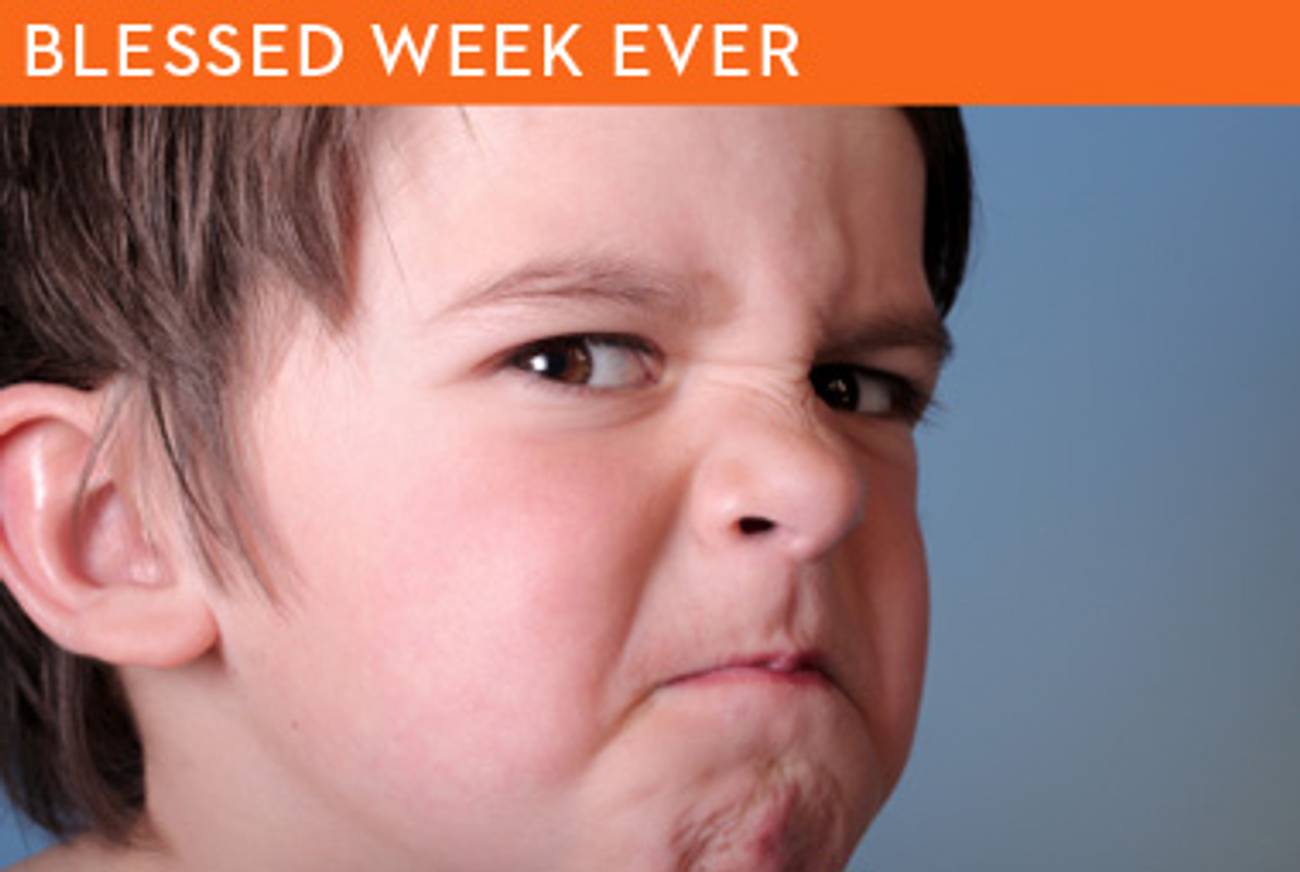Haters
A haftorah of strong emotions and long views




Our youthful selves, it sometimes seems, exist in our minds primarily to mortify us. We inhabit the present, dignified and mature, when all of a sudden a wraith emerges from the bowels of the past and disturbs our subtle sophistication with an icy whisper of youthful folly.
A while back, to name but one terrifying example, a friend unearthed a letter I’d written a decade ago, in which I, impoverished and proud, extolled the virtues of a life unencumbered by material possessions. One glance at my current credit card statement would be enough to reveal that asceticism is a position I’ve long ago abandoned. As I read the letter, I couldn’t help but think that its author, most likely, would not have liked me. The feeling was mutual: Given the chance, I would shake Young Me as hard as I could in the hope that a good rattle would bring the poor, misguided fellow back to his senses.
And while I’ve come to dismiss many of my teenaged follies—from political persuasions to cultural predilections—there’s one particular conviction I’m not ready to forgo. I stumbled across it one drunken night in the 11th grade, having one of those shattering conversations about life and its deepest meanings most human beings are only capable of having in high school. My take on the meaning of life at 16 went something like this: I’d rather be hated than loved, because love is finicky and aimless but hate is earthly and concrete. We can’t always explain why we love the ones we love, I said then, but we frequently know why we hate the ones we hate. A rationalist, then, should aspire to be hated; at least then he’d have a better chance of being understood.
There are, needless to say, several serious flaws in this argument, but it’s not completely invalid. Isaiah himself raises a similar question in this week’s haftorah; describing the days of the Messiah, he promises Israel the usual material bounties, with one notable addition: “The children of your oppressors shall go to you bent over,” says the prophet, “and those who despised you shall prostrate themselves at the soles of your feet, and they shall call you ‘the city of the Lord, Zion of the Holy One of Israel.’ Instead of your being forsaken and hated without a passerby, I will make you an everlasting pride, the joy of every generation.”
To a discerning reader, this is a terrifying prospect. Jews, Isaiah is suggesting, would have to wait until the end of time for the world at large to abandon its hatred of God’s Chosen People. What, we may be excused for wondering, might we do in the meantime?
It’s a more profound question than it seems. If you take it at face value, it suggests one of two obvious paths: Until the Messiah comes, the Jews could strive to inspire love in a world prone to hate them, or they could seek strength in their persecution and construct an identity around their exclusion. Both options are disastrous. The first leads to weak-willed defeatism, the second to rank chauvinism. But there’s another way, the one hinted at by my sometimes sober younger self, the one that suggests we take comfort in being reviled.
On the surface, this is a nonsensical suggestion. Given the centuries of violence and persecution, there’s little soothing about the world’s systematic hatred of the Jews. But if we examine the roots of this ancient animosity, we’d likely find more than coiled rage and inchoate fear: For the most part, hatred of Jews draws its energies from the fact that Jews have fashioned for themselves an astonishing theological banner, declaring themselves to be the Almighty’s favorite sons. Things appear even more sinister if we try and ask what exactly it is that the Chosen People believe they were chosen for. At the height of the Biblical drama, when God rewards the Israelites with their exalted status, he gives little by way of details. The Israelites, he commands, should become a kingdom of priests and a holy nation. But why, and how, and toward what end—that the Lord leaves up to interpretation.
To some, Jews and non-Jews alike, this divine designation is understood as a claim to superiority and, accordingly, a mandate to act freely and without regard for those unchosen. Such an interpretation, I believe, disregards the terrible beauty at the heart of the matter. God, not usually one for ambiguity, remains vague on this gravely important matter because vagueness is the whole point. It’s this vagueness that propels those who believe themselves chosen to understand the idea of chosenness, and as they do so they transform their world in an effort to create a society more just and inspiring; as the chosen people struggle to come to terms with their spiritual reward, they end up entirely worthy of it. They understand their election to be what it truly is—a terrible burden, an exhortation to live up to more exacting standards, a demand for unceasing sacrifice—and yet they embrace it, ready to fulfill their historical role.
Seen in this light, a verdict of eternal hatred isn’t quite as horrific. It comes with the territory. In dreams, Delmore Schwartz famously put it, begin responsibilities; the same is true of nightmares.
Liel Leibovitz is a senior writer for Tablet Magazine and a host of the Unorthodox podcast.
Liel Leibovitz is editor-at-large for Tablet Magazine and a host of its weekly culture podcast Unorthodox and daily Talmud podcast Take One. He is the editor of Zionism: The Tablet Guide.